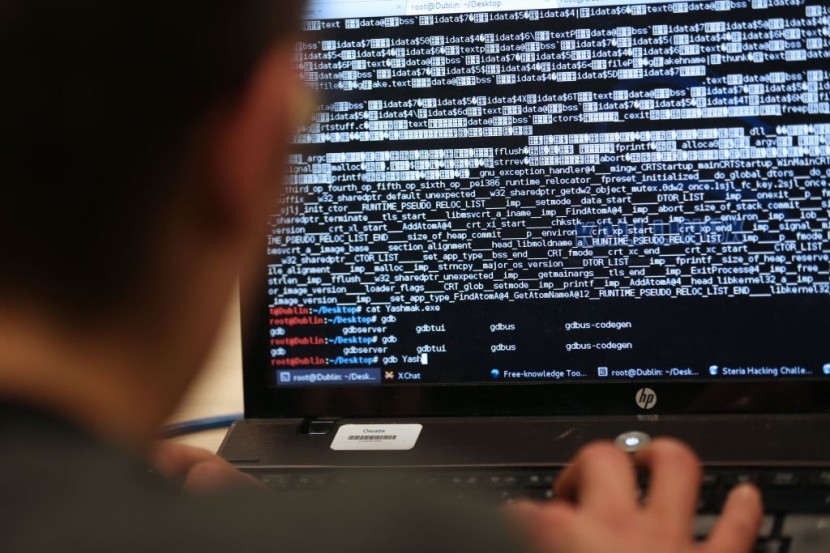
Suspected North Korean hackers have once again raised concerns by targeting a joint US-South Korea military exercise.
The exercise, named Ulchi Freedom Guardian, is designed to enhance the readiness of both forces in responding to North Korea's evolving nuclear and missile threats, as per Independent.
Cyber Intrusion Targets Key US-South Korea Military Exercise
While classified information remains uncompromised, the incident highlights the ongoing challenges posed by cyber espionage and the escalating tensions in the region.
Scheduled to commence on Monday, the 11-day Ulchi Freedom Guardian summer exercises have been a source of contention for North Korea, which accuses the US and South Korea of using the drills as a guise for preparing an invasion.
In this context, the recent cyberattack takes on added significance as a possible attempt to disrupt the exercises and undermine the coordination between the two allies.
Believed to be orchestrated by a North Korean hacking group known as Kimsuky, the attack utilized a familiar tactic known as "spear-phishing" emails.
This technique involves sending deceptive emails to unsuspecting targets, enticing them to reveal passwords or activate malware-laden attachments. In this instance, the emails were directed at South Korean contractors affiliated with the South Korea-US combined exercise war simulation center.
Thankfully, South Korean authorities have confirmed that military-related information remains uncompromised. This quick response highlights the importance of robust cybersecurity measures, especially in the face of persistent threats from state-sponsored hacking groups.
However, the incident serves as a reminder of the ongoing vulnerability of critical infrastructure and the need for continuous vigilance in safeguarding sensitive information. Interestingly, this recent cyberattack bears resemblances to a 2014 hacking attempt against South Korea's nuclear reactor operator.
At that time, South Korea had attributed the attack to North Korea. The reemergence of a similar IP address used in both instances further strengthens the link to North Korean actors, underscoring the persistence of their cyber capabilities.
In a parallel development that adds fuel to the already tense situation, North Korean leader Kim Jong Un oversaw a test of strategic cruise missiles. The state media reported the event as South Korea and the US kicked off their annual military exercises.
This juxtaposition further highlights the deep-rooted animosity between the two Koreas and their allies, as these exercises are seen by Pyongyang as preparations for a potential war. The missile test was described as aimed at verifying the ship's combat function and the capabilities of its missile system.
This demonstration of military prowess serves as a clear message to South Korea and the US, asserting North Korea's determination to strengthen its offensive capabilities, according to Aol.
Read Also: Zelensky Hails 'Historic' Agreement of Denmark, Netherlands Supplying Ukraine With F-16 Jets
South Korea's Resolute Military Response Amid Rising Tensions
South Korea's military response to these developments has been resolute. The Ulchi Freedom Guardian summer exercises of 2023 are set to be the largest in scale yet, involving tens of thousands of troops from both South Korea and the US, as well as some United Nations Command member states.
This show of force seeks to convey a united front against North Korean provocations while demonstrating the readiness of the allies to respond effectively. Despite North Korea's ongoing missile tests, the international community remains concerned about the potential for these missiles to be armed with nuclear warheads.
This alarming prospect underscores the urgency of diplomatic efforts to curb North Korea's nuclear ambitions and maintain stability in the region.
As North Korea continues to modernize its naval capabilities, including the unveiling of a nuclear-capable underwater attack drone earlier this year, the need for strategic coordination and cooperation becomes ever more critical.
In response to the recent cyberattack and missile test, South Korean lawmakers speculate that North Korea might escalate its military actions.
Concerns have been raised about the possibility of North Korea firing an intercontinental ballistic missile or taking other provocative measures in protest of the military exercises and the trilateral summit involving South Korea, the US, and Japan.
Amid these escalating tensions, it is clear that maintaining regional stability demands a delicate balance of military preparedness, diplomatic engagement, and cyber defense.
The recent cyberattack serves as a stark reminder of the hybrid nature of modern conflicts, where conventional military actions are supplemented by cyber operations.
As both sides continue their posturing, the world watches closely, hoping for a peaceful resolution that can de-escalate tensions and open the door to meaningful dialogue, Strait Times reported.
Related Article: China Conducts Military Drills Around Taiwan as a Warning








